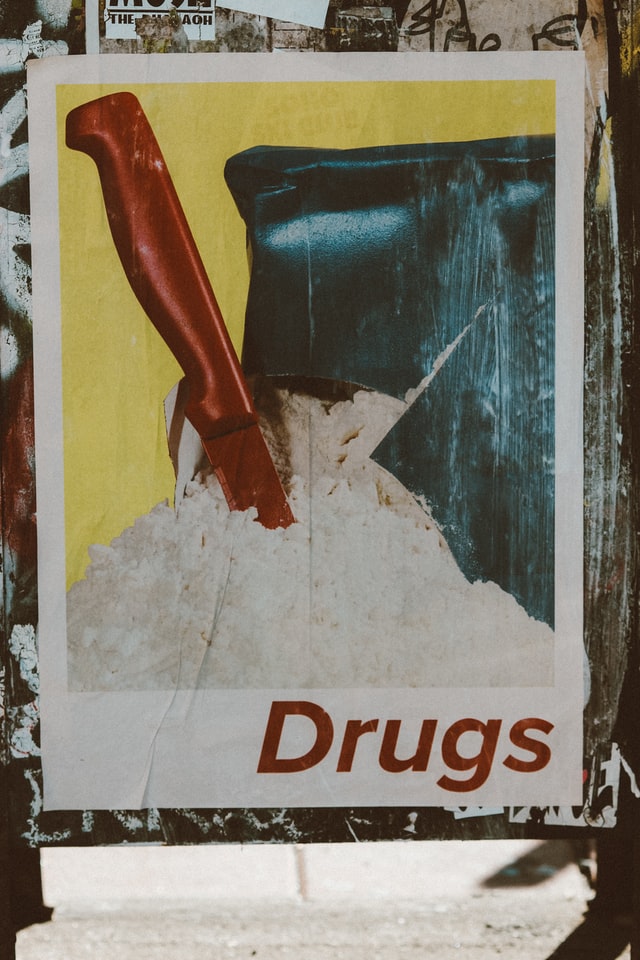
Opioids: A Corporate Created Crisis
Article by Kipp Shanks
Photo by Jon Tyson on Unsplash
At the time of his death in 1993, Pablo Escobar had an alleged net worth of up to $30bn; in 2021 McKesson, a U.S.-based pharmaceuticals distributor and one of the largest corporations in the world[1], had a revenue of over $200bn, with $60bn worth of assets.
Why compare the two? Escobar is remembered as a ruthless tyrant who caused harm to countless people through the illegal drug trade. McKesson, on the other hand, is a legitimate corporation that makes a profit in the legitimate pharmaceuticals industry[2], and isn’t increasing profits the only social responsibility of business? It may admittedly be sensationalist to make this comparison, but as it turns out, McKesson is one of several large corporations to be implicated in perhaps one of the largest floutings of corporate social responsibility in history: the creation of the U.S. opioid epidemic.
Declared a public health emergency in 2017 by the U.S. Department of Health and Human Services[3], the opioid epidemic contributed to the first sustained period of decline in life expectancy in the last one hundred years of American history[4]. This crisis, caused by the marketing of painkillers containing highly addictive opioid substances such as fentanyl and oxycodone, came as the result of a regime of corporate lobbying and misinformation[5], at the same time as the hugely costly ‘war on drugs’ started by Richard Nixon raged on.
“Corporations now govern society”, writes Joel Bakan[6], and indeed in this instance, both elected and officials became subservient to the corporation and its “pathological pursuit of power”[7] (and, of course, profit), with the brunt of this continuing to be borne by those vulnerable members of the public who became addicted. In fact, the opioid crisis is a stark reminder of the amount of power that corporations continue to possess: the argument is often made that social responsibility is now all but a requisite for the corporation if it wishes to find sustained success in the market. Bakan writes that corporations today are “seeking to soften their image by presenting it as human, benevolent and socially responsible”; Chris Komisarjevski, cited in the same article, calls this presentation “fundamental”. And yet it seems that the pharmaceutical companies marketing these highly addictive pain killers did so seemingly with impunity and irreverence for public opinion.
Perhaps this might be unique to this case, as given the nature of the pharmaceuticals industry corporations who sell such goods may be less likely to suffer from public backlash than a corporation that targets a more conventional consumer market, but it certainly seems that the corporations held all of the power in this situation, especially given their lobbying of elected officials, which is certainly not a phenomenon unique to the pharmaceuticals industry. Indeed, even when the corporations involved did face consequences for their actions it does seem that they were able to levy their considerable influence as a means of damage control.
In 2020, Purdue Pharma, the corporation responsible for marketing the drug OxyContin, which is often cited as having kick-started the epidemic, admitted to having “knowingly and intentionally conspired to aid and abet doctors dispensing medication without a medical purpose”[8], but the corporation was able to reach a settlement with the U.S. government, with money that it didn’t have. The corporation instead filed for bankruptcy (19 years after it had paid its first fine related to OxyContin, a product which it continued to market until its closure) and as such limited liability[9] protected major shareholders at the corporation despite its crimes.
The U.S. Opioid epidemic is an ongoing example of the collateral damage that can be caused by corporations. It might be cynical to say that, just as Pablo Escobar had before, the corporations involved in the marketing of opioids saw an opportunity to create a stable source of demand through marketing an addictive substance, guaranteeing future profits, alternatively they simply saw a hole in the market and exploited it. Either way, these corporations have been responsible for creating an epidemic that has ruined tens of thousands of lives every year[10]. They are only a few of the corporations that have oh so much to answer for.
[1] https://www.statista.com/statistics/263265/top-companies-in-the-world-by-revenue/
[2] https://www.nytimes.com/1970/09/13/archives/a-friedman-doctrine-the-social-responsibility-of-business-is-to.html
[3] https://www.hhs.gov/opioids/about-the-epidemic/index.html
[4] https://data.worldbank.org/indicator/SP.DYN.LE00.IN?locations=US
[5] https://www.nature.com/articles/d41586-019-02686-2
[6] https://contentstore.cla.co.uk/EReader/Index?guid=dc3ad8a1-36ab-e611-80c7-005056af4099&pcid=1467278&t=eyJhbGciOiJIUzI1NiIsInR5cCI6IkpXVCJ9.eyJqdGkiOiI0OWJjMmJiYi0wZDA5LTQxNDgtYjlkOC03MTA0ZmE5ZTk1NzIiLCJuYmYiOjE2NDc0NDAxNjUsImV4cCI6MTY0NzQ0MDQ2NSwiaWF0IjoxNjQ3NDQwMTY1LCJpc3MiOiJEQ1MiLCJhdWQiOiJSZWFkZXIifQ.lMtmFsBUjkoy67_S09il9bdSTi4Oz2UlbB1CYnAsYqs&b=False
[7] ibid
[8] https://www.ft.com/content/8112c484-c8f9-49f8-8d6d-bffeff9ccb59
[9] https://contentstore.cla.co.uk/EReader/Index?guid=dc3ad8a1-36ab-e611-80c7-005056af4099&pcid=1467278&t=eyJhbGciOiJIUzI1NiIsInR5cCI6IkpXVCJ9.eyJqdGkiOiJmOWZhYjBmZC05ZGJlLTRhMjEtOWM4NS1iMDNlMDU0YWRmYjYiLCJuYmYiOjE2NDc0NDQ5MTQsImV4cCI6MTY0NzQ0NTIxNCwiaWF0IjoxNjQ3NDQ0OTE0LCJpc3MiOiJEQ1MiLCJhdWQiOiJSZWFkZXIifQ.AOFDvgVMohpVejqZ2nROOf7Nyz4T49WFQnq8GVsytww&b=False
[10] https://www.hhs.gov/opioids/about-the-epidemic/index.html

0 Comments